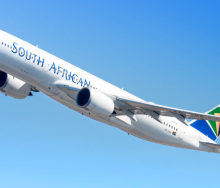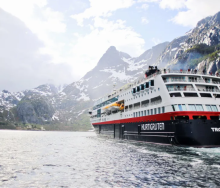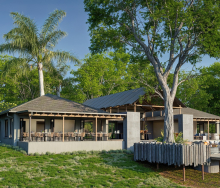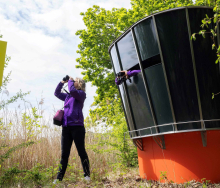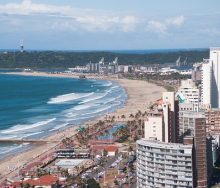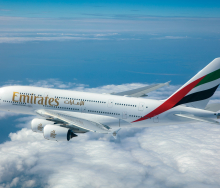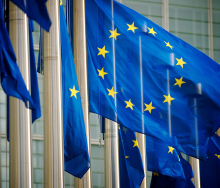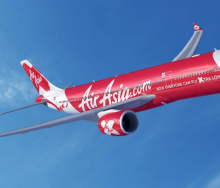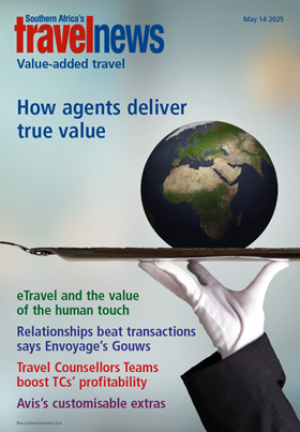IN A move that has surprised the entire
SA tourism industry, the Kenyan High
Commission has announced that, from
July 1, all South African travellers will
need a visa to visit Kenya.
When asked for the reasons behind
the move, deputy High Commissioner,
Helen Gichuhi, said: “Countries make
decisions based on their interests.
Diplomacy is also based on the
principle of reciprocity.”
Visa applicants travelling to or
transiting through Kenya will have to
pay a visa fee of US$70 (R750).
Travellers applying for a visa will also
have to follow stringent requirements,
including appearing in person at the
embassy in Pretoria for biometrics.
“Kenya is yet to open a consulate in
Cape Town, Durban or Johannesburg.
As such, any application for a visa will
have to lodged at the Kenya Mission
in Pretoria, 302 Brook Street, Menlo
Park,” Helen told TNW.
Other requirements include providing
an invitation letter from their host in
Kenya, a letter from their employer/
institution/college/school, proof of
funds (bank statement), a return air
ticket and two passport photos.
The processing period for the visas is
five working days. Visas will no longer
be issued on arrival in Kenya.
The announcement comes at a time
when Kenya is battling with rapidly
dwindling tourism numbers because
of the constant threat of terrorism.
Last week, the UK’s Foreign and
Commonwealth Office updated its travel
advisory to Kenya, following a deadly
terrorist attack in Mpeketoni near
Lamu, which left 48 people dead. SA
travellers are generally undeterred by
political unrest but the cost and hassle
of obtaining a visa will deter them from
visiting Kenya, tour operators say.
Frank Glettenberg, ceo of Private
Safaris, says Kenya is currently
experiencing the worst publicity.
He says foreign travellers
are avoiding Kenya for safety
concerns, even though the
safari circuits are perfectly
safe and the vast majority
of attacks in the recent past
have not targeted tourists.
“To further give travellers,
in this case South Africans,
reason to rather choose
another destination over Kenya
is suicide and will certainly
impact arrival figures just
ahead of the migration –
Kenya’s high season,” he says.
Allan Eccles, director and
owner of Falcon Africa Safaris,
says: “Lodge occupancies are
down; evidence is that we can
get still get availability in the
Masai Mara during August
and September, which is
the peak season due to the
wildebeest migration. The visa
requirement will undoubtedly
have a further negative effect,
which Kenya cannot afford. The
economy and employment rely
heavily on tourism. I am sure
that the Kenya Association
of Tour Operators will do
everything in its power to have
the decision reconsidered. “To
assist our clients booked for
the migration, we will cover
the cost of the visa and we
request our travel agents to
facilitate the visa for clients.”
John Ridler, spokesperson
of Cullinan Outbound Tourism,
says South African beach
lovers will rather opt to
holiday in Mozambique or
on the Indian Ocean Islands,
whereas game lovers will drop
Kenya in favour of Zimbabwe
and Namibia. Also Malawi
could benefit from renewed
attention. “The timing for
Kenya could not be worse and
there will be resistance to the
cost of R750 and having to
appear in person. Not a good
idea!” he says.
The Kenya Tourist Board
refused to comment at
the time of going to press.
The organisation told TNW
they would need all the
details about the new visa
requirement before they could
communicate on the matter.
